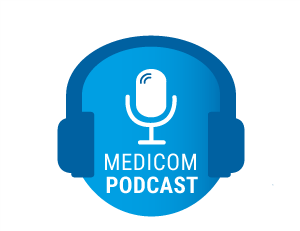"Overall, about 15% of KD patients are IVIG-resistant and require additional therapy," Dr. Jane Burns of the University of California, San Diego in La Jolla told Reuters Health by email. "Out study was prompted by the emerging problem of hemolytic anemia following a second IVIG infusion, and high cost. Future studies could compare infliximab to methylprednisolone for treatment of IVIG resistance in KD patients."
For a randomized trial reported in The Lancet Child and Adolescent Health, Dr. Burns and colleagues recruited U.S. children with KD and fever at least 36 h after completion of their first IVIG infusion.
The primary outcome was resolution of fever at 24 h after initiation of treatment, with no KD-related fever recurrence within seven days post-discharge. Secondary outcomes included duration of fever from enrollment, duration of hospitalization after randomization, and changes in markers of inflammation and coronary artery Z score.
Forty-nine patients (median age, 2.1; 61% male) received a second infusion of 2 g/kg IVIG, while 54 (median age 3.6 years; 54% male) received 10 mg/kg IV infliximab. Patients with fever 24 h to seven days following completion of first treatment crossed over to receive the other study treatment.
The primary outcome was met by 77% of patients in the infliximab group and 51% of those in the control group (odds ratio, 0.31).
Thirty-one patients with fever beyond 24 h crossed over: nine (17%) in the infliximab group and 22 (45%) in the second IVIG group. Three infliximab patients and two IVIG patients with fever beyond 24 h did not receive crossover treatment.
Mean fever days from enrollment was 1.5 for infliximab and 2.5 for the second IVIG infusion. Similarly, the mean hospital stay was 3.2 days for patients treated with infliximab and 4.5 days for patients who received a second IVIG infusion. There were no between-group differences for markers of inflammation or coronary artery outcome.
At least one adverse event occurred in 44% of infliximab patients and 67% of the control group. A drop in hemoglobin concentration of at least 2g/dL was seen in 33% of patients who received IVIG as either their first or second (crossover) study treatment (three of whom required transfusion) and in 7% of those who received only infliximab during the study (none required transfusion).
The only serious adverse event attributed definitively or probably to the study treatment was hemolytic anemia, which occurred in 15% of IVIG (first or second study treatment) patients only.
Dr. Burns added, "A future trial should investigate best practice for patients who present with coronary artery abnormalities on the first echocardiogram. Intensification of initial IVIG therapy by adding either steroids or infliximab should be studied."
Dr. Jon (Sandy) Burnham, Clinical Director of the Division of Rheumatology, Director of the Lupus Program and Co-Director of the Lupus Integrated Nephritis Clinic at Children's Hospital of Philadelphia, commented on the study in an email to Reuters Health.
"We have used infliximab for a number of years in children with refractory or severe KD," he said. "This study provides concrete evidence that infliximab is an effective medication in refractory KD when considering outcomes such as fever and duration of hospitalization. Relative to a second dose of IVIG, infliximab may be preferred from both a safety and efficacy standpoint."
Nonetheless, he noted, "There was an imbalance in patients with significant coronary artery dilation at randomization, which limits our ability to interpret coronary artery outcomes. In practice, steroid therapy is frequently used for refractory KD. The relative efficacy was not assessed in this trial."
Like Dr. Burns, he said, "A clinical trial assessing steroid therapy versus infliximab for refractory KD would fill in an important knowledge gap, especially if coronary outcomes are assessed."
SOURCE: https://bit.ly/3o9kyHr The Lancet Child and Adolescent Health, online October 26, 2021.
By Marilynn Larkin
Posted on
Previous Article
« Letter from the Editor Next Article
New class of CAR-T promising against neuroblastoma, other solid tumors »
« Letter from the Editor Next Article
New class of CAR-T promising against neuroblastoma, other solid tumors »
Related Articles
September 17, 2021
Axial involvement is critical in psoriatic arthritis

June 18, 2023
EULAR 2023 Highlights Podcast
© 2024 Medicom Medical Publishers. All rights reserved. Terms and Conditions | Privacy Policy
HEAD OFFICE
Laarderhoogtweg 25
1101 EB Amsterdam
The Netherlands
T: +31 85 4012 560
E: publishers@medicom-publishers.com

